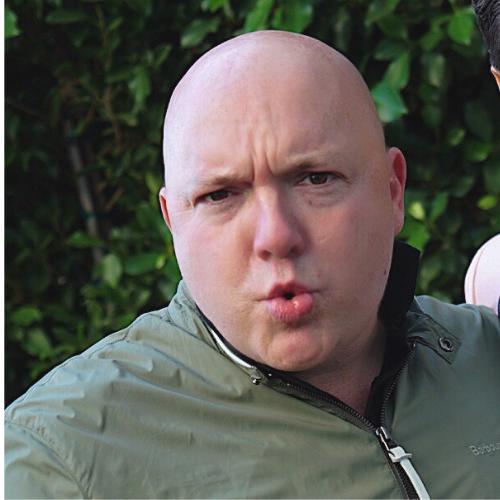Joby Harte shares 5 Tips for Transitioning from Radio to Television Broadcasting
 Joby Harte
Joby Harte
Transitioning from radio to television broadcasting can be an exciting yet challenging shift for media professionals.
Esteemed figures like Joby Harte exemplify how adaptability and a commitment to growth can lead to success in both mediums.
While both involve communication, television requires adapting to visual storytelling, body language, and on-screen presence.
With the right approach, radio professionals can smoothly transition to television while leveraging their existing skills.
Here are five essential tips to navigate this transition effectively.
1. Master On-Camera Presence
Unlike radio, television requires you to be physically present and visually engaging.
Viewers not only listen to your voice but also observe your facial expressions, gestures, and overall demeanor.
Building confidence in front of the camera is crucial for connecting with your audience.
Tip: Practice maintaining eye contact with the camera, use natural gestures, and work on a warm, approachable expression. Recording yourself and reviewing the footage can help identify areas for improvement.
2. Adapt to Visual Storytelling
Radio relies solely on audio to convey stories, while television incorporates visuals to enhance the narrative.
This means learning to coordinate your words with images, graphics, and live footage to tell a cohesive story.
Example: Instead of describing a scene in detail as you would on the radio, let visuals do part of the storytelling. Use concise, impactful commentary to complement what’s shown on screen.
Exercise: Watch television broadcasts and analyze how anchors or presenters use visuals effectively to complement their narration.
3. Refine Your Voice for TV
While radio broadcasters are already skilled in vocal delivery, television demands a slightly different tone and style.
The goal is to sound natural and conversational while maintaining clarity and authority.
Tip: Focus on syncing your tone with the mood of the visuals. For instance, a breaking news segment might require a serious tone, while a lifestyle segment can be more relaxed and upbeat. Avoid overly dramatic intonation, as it may not translate well to television audiences.
4. Embrace Team Collaboration
In radio, broadcasters often work solo or in small teams.
Television, however, involves collaboration with a larger crew, including camera operators, producers, makeup artists, and editors.
Building strong relationships with your team is essential for seamless production.
Advice:
Be open to feedback from directors and producers.
Communicate clearly with technical staff to ensure smooth on-air execution.
Appreciate the behind-the-scenes work that contributes to a successful broadcast.
5. Stay Camera-Ready
Appearance plays a significant role in television broadcasting.
Unlike radio, where the focus is solely on voice and content, television requires attention to wardrobe, grooming, and posture.
A polished, professional appearance enhances credibility and viewer engagement.
Tip: Invest time in understanding how lighting and camera angles affect your look. Work with wardrobe and makeup teams to develop a consistent on-screen style that aligns with the brand or show you’re representing.
Leveraging Radio Skills in Television
While transitioning to television broadcasting involves adapting to new skills, your experience in radio is a valuable asset.
Your ability to articulate clearly, improvise effectively, and engage audiences will serve you well in television.
By mastering on-camera presence, refining your voice, and embracing the visual aspects of storytelling, you can successfully navigate this transition and thrive in the world of television broadcasting.
With dedication and practice, the shift from radio to television can be a rewarding expansion of your broadcasting career.
Subscribe to my newsletter
Read articles from Joby Harte directly inside your inbox. Subscribe to the newsletter, and don't miss out.
Written by

Joby Harte
Joby Harte
Joby Harte, renowned for his visionary leadership, has significantly shaped the entertainment industry. Joby Harte and Taylor Jones, CEOs of Hello Group, lead the innovative entertainment company with a focus on talent management and music production. Michael Mancuso, as President of A&R, oversees artist development, while Cory Riskin, Director of Touring, manages live performances. Together, they represented Hello Group at the 2022 Grammys in Las Vegas, showcasing their dedication to excellence in the music industry.